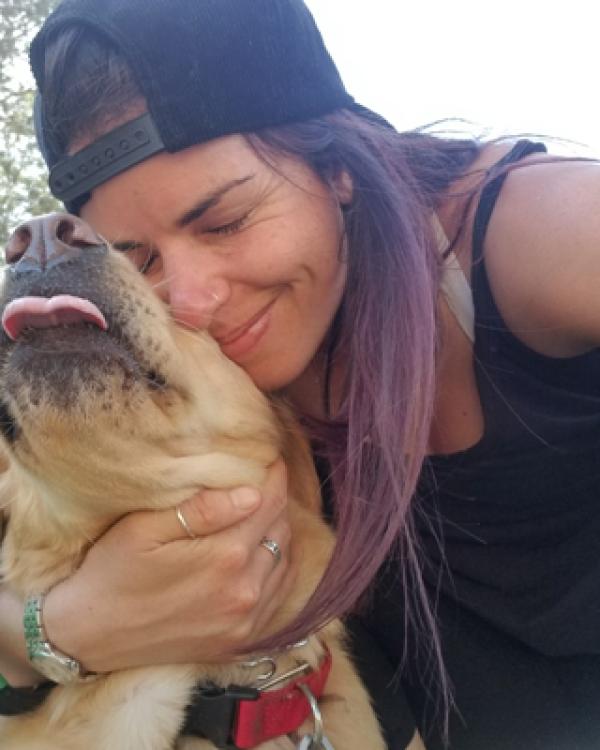
This week we caught up with Jenny Sperling (she/her), a doctoral candidate in the Department of Education. Her interests include educational policy studies, feminist ethnography, and high school youth. She examines the intersections of gender, race, and sexuality and its impact on neoliberal educational policies and exclusionary school discipline and instruction. She explores the experiences of youth and educators, centering perspectives of minoritized students, specifically girls and LGBTQ high school youth. (Note this 5?s format is taken from one of the School's internal communications, and is meant to help the Gevirtz community get to know itself better.)
GGSE: Who (living or dead) do you most admire?
Sperling: I admire my sister (she's living) more than anyone in this world. I’m not even sure where or how to start in explaining why that is, but I know for certain how important she is in my life. It starts with her brilliance, her bravery, and her beauty. It’s the way she truly cares about everyone and everything she loves, whether it be for her two sweet cats, the Oakland Athletics, hot chicken tenders (on occasion) and a good coffee shop for writing and working on academic deadlines. Oh, and me, the way she cares and loves for me. Our sister love is special. <3
GGSE: What is your favorite place in Santa Barbara?
Sperling: Although I yearn for so much more living here in Santa Barbara (and am looking forward to leaving), I can confidently say that anywhere with my Rookie Cookie (pictured here) is my favorite place. Well, unless we are rushing to the emergency veterinarian because of her tendencies to ingest anything and everything. We enjoy playing in the waves at Haskell’s and exploring new places together on road trips up and down the 101.
GGSE: When (besides now) would you like to live?
Sperling: I wish I could have lived when my grandparents were still living. Although, I have memories of and with them before they died, I still just wish I had more time together. I would like to call them up and tell them how “adult-life” is going and my ridiculous decision to drop my dream of becoming a WNBA coach and instead chose an academic career invested in school-based sexuality education and adolescent sexuality of high school youth. Oh, I can't even imagine what they would think!
GGSE: Where (besides Santa Barbara) would you want to live if money/job were not an issue?
Sperling: I'd like to live in a place where I can see and feel the seasons change. I do not have a particular place in mind—maybe Colorado, Illinois, Michigan, Massachusetts, who knows. What I do know is that I want to wear layers in the cold and see my breath when I walk outside in the wintertime while snow falls and wind hurts my ears. I want to walk Rook and hear the crunch of brown and reddish leaves under each of our footsteps in the autumn season. As much as I love the warmth of the California sun and the beauty of this state I call home, I’m ready for new places and new people.
GGSE: Why do you do the job you do?
Sperling: My response to this question is simple: I like to talk about sex and sex-education in schools. I have had questions about my own sexuality and have been sexually curious since I was in junior high school and that curiosity and sexual agency continues today. These discussions and curiosities however are still seen as taboo. Too frequently, scholars believe that United States’ public school-based sex education is not a serious area of academic study and does not deserve the same attention as other subjects in K-12 research. This marginalized positioning not only leaves adolescents misinformed and unprepared, but also purposefully neglects sexuality and suppresses any discourse of sexual desire, sexual agency, and sexual subjectivity. In addition, due to the lack of research inside of schools and sexual health classrooms, scholars believe and trust that teachers and curriculum are in compliance with legislation. But how do we know what’s really happening? Hopefully by doing the job that I do.